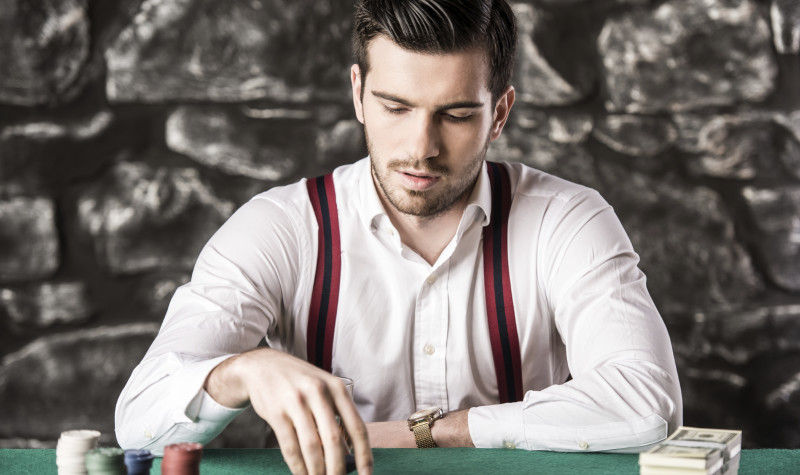Why Trading is Like Poker

Both trading and poker are considered pursuits of skill by some, and sheer gambling by others. The similarities don’t end there. Obviously trading relies a lot on preparation, which I suppose you could compare to strategy in poker; but if you consider each poker hand as a trading opportunity, then the comparison starts to make sense. To win at poker it’s important to play only the hands that you have a chance of winning (except for strategic purposes). For this reason there are players who only ever play aces. Given the ace is the highest card, they start off with a relative advantage. And that’s what we’re trying to do in trading: to take a trade with which we have a good chance of winning. Whether you’re at the fundamental trader end of the spectrum – in which case the equivalent of an ace might be an undervalued blue chip company – or at the a technical trader end – in which case your ace would perhaps be a head and shoulders – at the end of a bull market and supported over different time scales, the principle is the same.
It’s equally important to be aware that when conditions have changed, and a reversal of fortune now means you have little or no chance of winning, you must manage that position or hand. So while in poker you may fold, in trading you’d have a stop-loss hit or just close the position and limit your losses/secure your profits.
So far, so good. Trading, like poker, is all about conserving capital and playing the odds. “So where does bluffing come in, then?” I hear you ask. Well it certainly does come in. In trading it’s very easy to imagine you are all alone in a mechanical world, and the market is a machine that’s not going to mess you about. That’s simply not true. It’s not so much that there are ghosts in the machine, than that the ghosts have machines. Market makers make a lot of money, not off each other, but off private investors and traders like us. Fake moves and manipulation to hit buying levels and stop levels are staple fare for these people (I say ‘people’). They know how you trade and they are trying to scare you off, to make you fold!
So as your trading becomes more sophisticated you have to learn to recognise the market bluff and say: “I see your fake breakout and raise you another short position!”
Cash management is equally important in both, too. Inside the game, you are less likely to see someone all-in, even perhaps with a great starting hand, if they have more chips than you. But if you are the big stack and they go all-in, with a great starting hand you’ll call them every time. This is like being careful not to pile into a trade so volatile that if it goes a little wrong you’ll be wiped out!
But cash management goes beyond that. On a larger scale, whether you play tournaments or cash games, then you have to risk only a certain percentage of your capital each time if you play, and that’s just like trade sizing. Each trade should (probably) have equal weight in your portfolio, such that your risk on each trade is broadly the same. I’ve my own method of trade sizing, and you must be aware that when it comes to spread betting, it’s a little more complicated to come up with that figure (unlike buying actual shares where you could, for example, invest 10% of your capital into one position). So I have a simple formula that makes it really easy to do using simple mental arithmetic. I’ll cover that another time.
Similarly, confidence and state of mind play a big part in both poker and trading. There’s a saying in trading that “scared money never wins”, and that’s equally true in poker.
Now, I’m not suggesting that you start playing big money games, but my poker certainly helps my trading and vice versa, so if it’s something that interests you then it’s worth having a bash.
You can open an account without having to part with cash and play games with ‘play money’. That said, rather like when you paper trade your way to a million and then find the market isn’t quite so forgiving when you try the same strategy for real, when people play poker for play money they don’t really take it seriously. There are plenty of free rolls (where you don’t pay to enter but you can win something), and if you want to play for money there are tournaments for as little as a pound/dollar or two.
I prefer to play people face to face, look them in the eye, and check their body language. Apart from casinos there are plenty of low stakes pub games. Either way, poker, like trading, is about behaviour, and in that behaviour you will find identifiable patterns. People are predictable. That’s your edge – and it’s what underpins Technical Analysis too.
Comments (0)